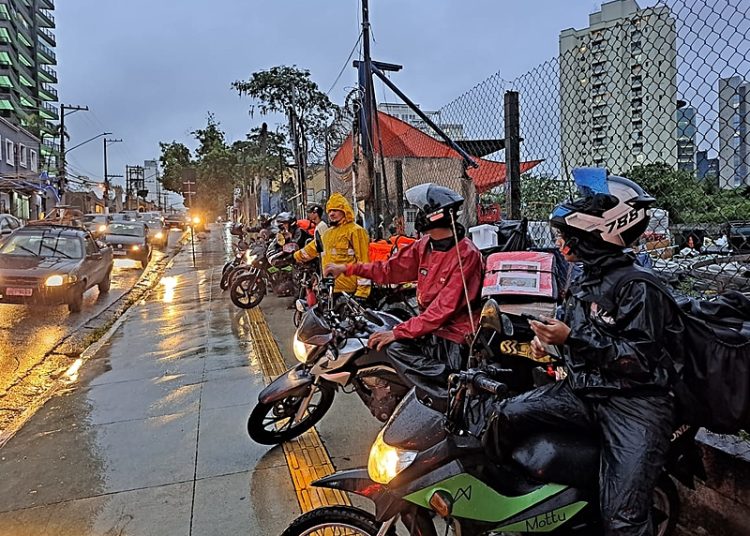After being denounced in a journalistic report and pressured by the Federal Public Ministry (MPF) and the Public Ministry of Labor (MPT), the food delivery application iFood Brasil signed a conduct adjustment term (TAC in the Portuguese acronym) committing itself to comply with measures aimed at ensuring the labor rights of couriers and also society's right to information. The term was also signed by the companies Benjamim and Social QI, which operate in the communication field.
The initiative is the result of a joint investigation by the Public Prosecution Service initiated after a complaint made in a report by Agência Pública published in April 2022. The website showed that, between 2020 and 2021, the two advertising agencies mentioned above acted at the service of iFood to falsify profiles on social networks and infiltrate agents in a protest by couriers who articulated in favor of labor rights that were not guaranteed by the platform.
According to the investigations, the companies acted with the aim of stopping the mobilization. The monitoring would have taken place “both on the internet and on the streets, in the wake of the growth of claims”. At the time, the main objectives of the workers' protests were to increase the remuneration paid by iFood for each delivery and to protect couriers from the risks of covid-19.
The conduct adjustment term signed by the three companies covers three axes: compensation, satisfaction and non-repetition. In the first, iFood undertakes to invest R$6 million (approximately US$1.2 million) in research and projects that analyze working relationships with couriers, digital marketing and the advertising market, as well as the social responsibility of platform controllers. The funds must be sent to institutions and entities such as public agencies for the promotion of science and federal government ministries that can be responsible for the selection and management of these projects.
In terms of “satisfaction”, the three companies involved must promote a digital marketing campaign that addresses the relevance of society's right to information in the internet environment. The campaign must run for at least three months and run on at least three major digital platforms, such as Twitter, Instagram, YouTube and TikTok.
“In order to have their right to information respected, citizens need to know if it is a company that is posting certain content on the internet, in what context and for what purpose”, explains the Public Prosecutor Yuri Corrêa da Luz, while also highlighting that the information is essential for society to exercise the right to freedom of expression. For this reason, as established by the Public Ministry, respect for workers' freedom of expression and protest must also be the campaign focus.
The three companies must also make a joint public statement on the facts found and the clauses of the agreement in question. In addition to the topics mentioned above, the initiative should address the importance of freedom of association and the rights of workers to collective bargaining and to strike. The content should be on the air for three consecutive weeks, also on digital platforms, in addition to being published on the pages of the companies involved and in some national communication vehicle.
Finally, with regard to the “non-repetition” axis, the Public Prosecutors point out that the term brings some innovations. One of them concerns the adoption of an internal “human rights compliance” program. The initiative must include the identification of risks of violation of fundamental rights and the duty to transparency, paving the way for preventive and corrective measures to be taken in the face of the problem.
In order to execute the program, the Public Ministry of Labor and the Federal Public Ministry stipulate that a technical assistant must be appointed from outside the companies and with independence in relation to the three, and the name of the appointed person must still be approved by the Federal Public Ministry.




